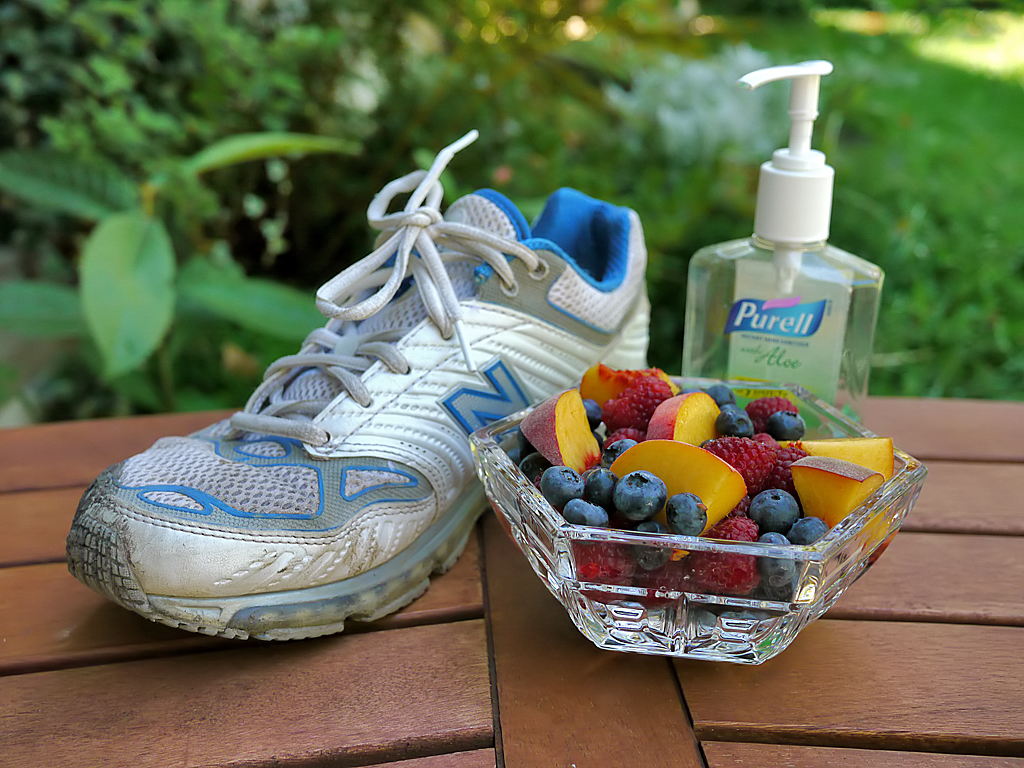Maintaining a healthy diet may become a challenge for UCLA students residing on the Hill when they face the rigors of hunger, academics and stress.
For students dining in the residential restaurants, this is perhaps the first time they have had an all-you-can-eat buffet to provide them with their meals, said Christian Roberts, an assistant professor in the UCLA School of Nursing.
The tendency is to eat more than they normally would, as multiple studies have shown that the more food a person is presented with at a meal, the more he will eat, Roberts said.
Therefore, the two concerns are that students will eat too much, and their food choices will not be very healthy, he added.
The U.S. Department of Agriculture’s food pyramid provides a comprehensive guide of the essential foods people should eat regularly, said Joanne McGill, assistant director of business services of UCLA Dining Services.
Professionals generally recommend students keep a healthy diet of mostly fruits and vegetables. Moderate portions of food per meal are also recommended, said Roger Pigozzi, the assistant director and executive chef of UCLA Dining Services.
To control their cravings while eating in the dining halls, students are advised to go tray-less and consume one entree at a time, Pigozzi said. This practice can help students reduce portions, food waste and resources needed for cleaning dishes and trays, he added.
Students may use the food guide pyramid to understand how to balance fruits, vegetables, grains, lean proteins, milk and small amounts of fats and oils into their diets, McGill said.
“Portion control is critical. You can have a Bruin Burger if you have a little bit of fresh fruit or yogurt or small salad after. But you shouldn’t take two Bruin Burgers and double stack them,” Pigozzi said.
In addition to portion control, students should also be mindful of the calories, fats and sugars in their food, said Dr. Zhaoping Li, a professor of medicine in clinical nutrition.
The key advice for college students is to maximize vegetable intake, Li said.
However, she added, this recommendation does not necessarily suggest students should eat only salads. Rather, their vegetable intake should be wide and varied.
“Vegetables do not necessarily have to equal iceberg lettuce, which has zero nutritional value,” she said. “The iceberg lettuce usually comes in so bland, so people have (to use) dressings, dippings and other things to make it go down.”
Most, if not all, people are suited for a plant-based diet, Li said. This kind of diet provides the body with adequate, essential nutrients without the worries of saturated fats and high sugars.
But maintaining good health does not only include diet watching, Li added. Even brief physical activity throughout the day is beneficial, she said.
“If all of a sudden we become so sedentary … we would lose all the capability we have. Muscles are going to go down in quality or quantity,” Li said. “If you can stand around, don’t sit. If you can walk, don’t stand.”
Li urges students to be more mindful of their snack choices and avoid high-calorie and high-sugar items, such as dried fruits, peanuts, juices, sodas and convenience coffee beverages.
Roberts advises students to drink more water and eat more whole grain foods, such as brown rice or oatmeal.
“This is the biggest time of your life,” Li said. “This is really the time to take care of yourself, to be responsible for yourself.”
However, eating responsibly does not necessarily mean students have to avoid unhealthy foods completely, Roberts said. Students should understand that on occasion, they may consume high-fat and high-sugar foods., Roberts said.
“If you eat really healthy at most of the meals, then that one or two meals a week when they want to eat something that’s not that healthy, then you don’t really need to worry about it too much,” Roberts said.
However, if students eat those foods more frequently, they must consider the potential negative consequences for their health and day-to-day lives, Roberts said. Consuming too much sugar may cause students to feel lethargic and have trouble with proper food digestion.
“Many of them don’t understand that the food that they eat has important implications for not only how they feel, but their body’s health now and … in the future,” Roberts said.
